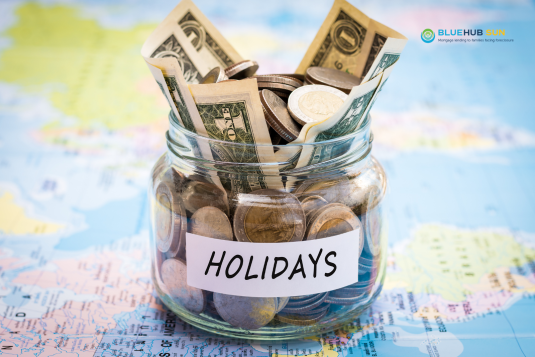Cutting back on your unnecessary purchases is extremely important during inflationary periods – like right now.
As prices rise, the same amount of money buys fewer goods and services. This means the money you’re spending on non-essential items is increasing, and expenses that are often overlooked and appear small are costly over time. By adjusting your routine spending, you can lessen the impact of inflation on your budget, maintain your overall financial stability and even improve your financial health. Here are some expenses you may not have considered can add up over time, and tips on how adjust your habits:
- Coffee and beverages: Based on a 2022 report by the Perfect Brew, the average person spends between $1,934 to $2,327 every year on coffee at coffee shops or cafes.
- Tip: Swap your Dunkin’ drive-through for home brewed coffee to significantly reduce this expense.
- Streaming Services: According to US News, individuals are often subscribed to three ad-free video or music streaming services that could cost more than $400 a year. Netflix and Spotify, for example, total around $120 annually, while HBO Max totals around $150 annually.
- Tip: Take an audit of what streaming services you’re paying for now and add them all up to find out how much you’re paying monthly. Try canceling your plans to figure out which one or two you truly miss and resubscribe to only those.
- Cable or satellite TV: US News concluded that in 2022, the average monthly cable package was $217.42. Although it is possible to find a basic cable package for as a low as $50, cable TV is a significant expense, often adding up to and even surpassing the combined monthly costs for major utilities.
- Tip: If you are subscribed to streaming services and paying for cable, it would be beneficial to cancel the one you use less. Although streaming services are expensive and add up annually, they tend to be less costly than cable. Therefore, if you opt for streaming over cable and follow the practices in tip #2, you could reduce your household expenses significantly.
- Eating out: The average American eats out 5.9 times per week, spending roughly $3,000 annually. Check out the average cost of dining out in your state.
- Tip: Try bringing a lunch to work and cooking dinner at home at least 5 days a week. If you have a hard time finding time to cook during the week, try meal prepping on the weekend so that your meals are made ahead of time.
- Ghost Subscriptions: Since subscriptions are digital and made to be hard to manage, people often forget about the recurring payments billed to their credit cards every month. According to AARP, 66% of consumers forget about at least one of their recurring payments.
- Tip: Review your credit card bill and cancel these unnecessary subscriptions before they auto-renew. It could save you $10-$50 a month on average.
- ATM/Bank fees: According to the Forbes' Checking Account Fees Survey, the average monthly overdraft, maintenance and ATM fees are $24.93, $5.14 and $1.77 respectively. Over the course of a year or decade, these fees can cost you hundreds to thousands of dollars in unnecessary expenses.
- Tip: These fees are easily avoidable by using ATMs within your bank's network to avoid the out of network fees, setting reminders to avoid overdraft fees and choosing fee-free checking accounts. Often online banks offer fee-free or low-fee accounts that can help to avoid monthly maintenance fees. It is also important to stay up to date on your accounts by regularly monitoring your activity.
These are just a few of the common, unnecessary expenses you can reduce to improve your financial health. After identifying the ones that resonate with your daily spending, eliminating and reducing them could have a positive impact on your budget and financial goals. Small expenses add up over time, so be consistent and disciplined in managing your spending habits.

